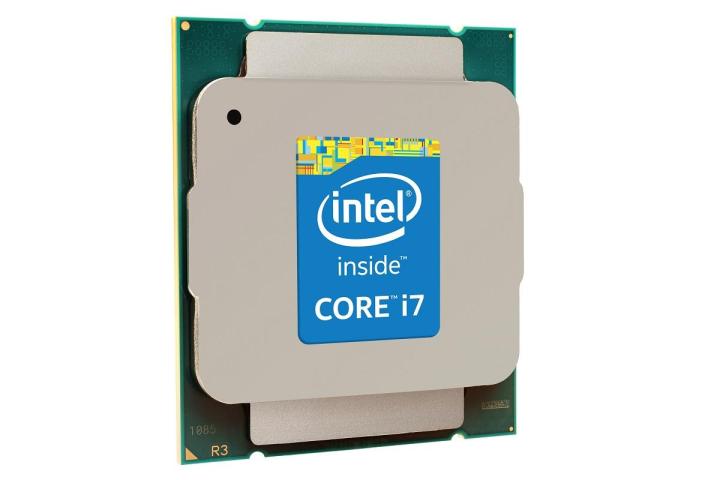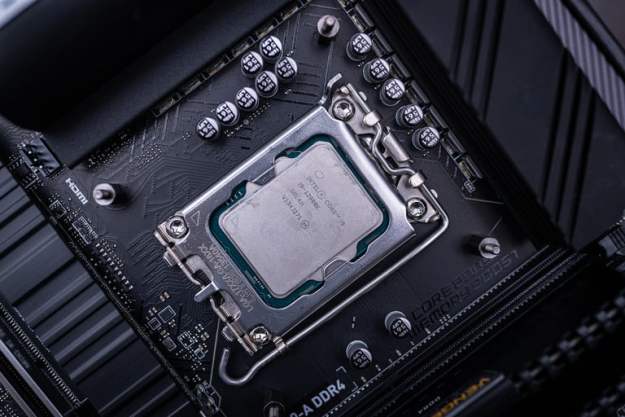
It’s virtually common knowledge that Intel’s CPUs blow away most of what AMD has to offer. This time, Intel has topped itself again, announcing the Core i7-5960X CPU, which features not two, not four, not six, but eight processor cores in total.
Code-named Haswell E, the Intel Core i7-5960X runs at 3GHz, and launches alongside Intel’s new X99 chipset. X99 paves the way for DDR4 RAM, and other technological improvements in the PC world. As is the case with Intel’s other processors, the Core i7-5960X features a Turbo Boost clock that can drive its clock speed up to 3.5GHz. If you want to go even higher than that, you’re more than welcome to. The Core i7-5960X’s cores are unlocked, so you can overclock this monster to go past its stock speed of 3GHz.
Eight cores sounds good on paper, but what does that translate to in performance? We conducted a bunch of synthetic benchmark tests, whose scores will appear in our upcoming Core i7-5960X review once it goes live soon. For now, all we’ll say is that this chip absolutely obliterates its predecessors when it comes to multi-threaded performance. Plus, as the specs sheet above states, it supports 40 PCI-Express lanes. This means that you can run two graphics cards in x16, and a third in x8. You can also slot in five motherboards and run each at 8x, but you’ll need a huge motherboard and case to pull off a setup like that.

Unfortunately, there are some significant backwards compatibility limitations when it comes to the Core i7-5960X. You’ll need to get a new X99 motherboard in order to get it to work, because while the Haswell E specs sheet says that the 5960X is compatible with motherboards that have the LGA2011 processor socket, the fine print reveals that you need a motherboard with LGA2011-v3. If you try to stick this in a vanilla LGA2011 motherboard, it won’t work, so don’t even try.
On top of that, the new motherboard you’ll need to buy in order to enjoy this power requires DDR4 RAM. It is not backwards compatible with cheaper (and still-sufficient) DDR3 memory, which adds on to the total cost of a Haswell E system build.
Intel is announcing three new chips in total, and the Core i7-5960X is the cream of the crop. One is called the Core i7-5930K, which runs at 3.5GHz, has a Turbo Boost clock of up to 3.7GHz, and slices the core count from eight to six. Then, there’s the Core i7-5820K, which runs at 3.3GHz, has a Turbo Boost speed of up to 3.6GHz, and also sports six cores. So, if you don’t want to go totally hog wild with the 5960X, there are other options available.

These new Haswell E chips, including the Intel Core i7-5960X, should be available right now. The 5960X costs a whipping $999, while the 5930K and 5820K will run you $583, and $389, respectively. The 5820K approaches Devil’s Canyon territory from a pricing standpoint. Considering that you can buy an Intel Core i7-4970K Devil’s Canyon CPU for $340 right now, we wonder how the two chips compare from a performance standpoint. For what its worth, the 5820K’s two extra cores probably give it a significant leg up in multi-threaded applications. Then again, it also comes with the added cost of having to upgrade to X99 and DDR4 RAM.
Keep your eyes out for our full Intel Core i7-5960X Haswell E review, which should go live very soon.
Editors' Recommendations
- Nice try, Intel, but AMD 3D V-Cache chips still win
- I tested the Intel Core i9-14900K against the Core i9-13900K, and it’s not pretty
- Intel Core i5 vs. i7: Which CPU is right for you in 2023?
- Intel’s Core i9-13900KS hits 6GHz out of the box, but there’s a catch
- Head-to-head: Intel Core i7-12700H vs. AMD Ryzen 9 6900HS


